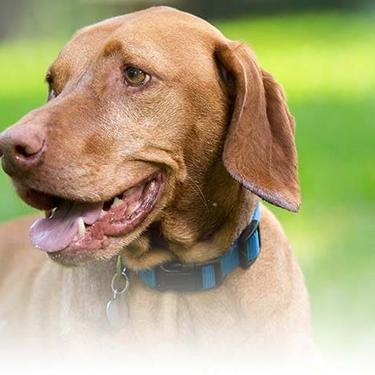
-
Find the right food for your pet
Take this quiz to see which food may be the best for your furry friend.
Find the right food for your pet
Take this quiz to see which food may be the best for your furry friend.
Featured products
 Adult Healthy Cuisine Roasted Chicken, Carrots & Spinach Stew Dog Food
Adult Healthy Cuisine Roasted Chicken, Carrots & Spinach Stew Dog FoodDelicious roasted chicken paired with tender vegetables in a succulent stew
Shop Now Small & Mini Savory Stew with Chicken & Vegetables Dog Food
Small & Mini Savory Stew with Chicken & Vegetables Dog FoodA delicious complement to the nutrition of Science Diet Small & Mini 7+ dog food
Shop Now Adult 7+ Perfect Digestion Chicken, Whole Oats & Brown Rice Recipe Dog Food
Adult 7+ Perfect Digestion Chicken, Whole Oats & Brown Rice Recipe Dog FoodScience Diet's breakthrough nutrition supports ultimate digestive well-being & healthy microbiome for dogs age 7+
Shop NowFeatured products
 Adult Savory Entrée Can Variety Pack Cat Food
Adult Savory Entrée Can Variety Pack Cat FoodPrecisely balanced nutrition with the delicious taste of savory minced chicken to help fuel the energy needs of cats during the prime of their life
Shop Now Adult 7+ Senior Vitality Chicken & Vegetable Stew Cat Food
Adult 7+ Senior Vitality Chicken & Vegetable Stew Cat FoodImproves Everyday Ability to Get Up & Go
Shop Now Adult 7+ Tender Tuna Dinner Cat Food
Adult 7+ Tender Tuna Dinner Cat FoodWith delicious chunks in a decadent gravy
Shop Now -
Dog
- Dog Tips & Articles
-
Health Category
- Weight
- Food & Environmental Sensitivities
- Urinary
- Digestive
- Joint
- Kidney
-
Life Stage
- Puppy Nutrition
- Adult Nutrition
- Senior Nutrition
Cat
- Cat Tips & Articles
-
Health Category
- Weight
- Skin & Food Sensitivities
- Urinary
- Digestive
- Kidney
-
Life Stage
- Kitten Nutrition
- Adult Nutrition
Featured articles
 Do Dogs and Cats have Belly Buttons?
Do Dogs and Cats have Belly Buttons?Learn whether cats & dogs have belly buttons like humans, what the function is, and if there are any health concerns associated with it.
Read More Why Are Dogs and Cats So Cute?
Why Are Dogs and Cats So Cute?If waggy puppy dog tails and furry kitten yawns make you swoon, you're not alone. Why are cats so cute? And, dogs too! Let's find out!
Read More Does My Pet Hate Me?
Does My Pet Hate Me?Learn tips for bonding with your pet if you've ever thought, 'My dog doesn't like me, or 'Why do I have a standoffish cat?'
Read More -


If you've ever walked your dog during the wee hours of the night, you may have wondered, "Can dogs see in the dark?" Perhaps you've even asked, "Do dogs have night vision?"
As a pet parent, you want to keep your furry family member safe and comfortable when you walk them during the nighttime. Knowing the answers to these questions can make all the difference. Let's take a closer look at how your dog's vision works so that you know whether or not they're safe when the lights are low or off completely.
Can Dogs See in the Dark?
There's no need to worry — your dog can see in the dark. It's safe to take your pet for a stroll in the evening hours or let them roam around your house unsupervised at night. In fact, your dog's vision, in some instances, is better than a human's would be. However, dogs are more nearsighted than their human counterparts, and they see fewer shades of colors when processing visual objects.
Wondering how it all works? The structure of your dog's eyes is what makes them able to see in the dark — their large pupils allow them to let in more light. Because of the additional rods in their eyes, dogs are able to tell the difference between light and shadow. Dogs also have a membrane along the rear of their eyes called tapetum lucidum, which, according to Animal Planet, "allows light that is not absorbed by the rods to rebound to the retina, letting it take in more light, which enables the dog to see better."
So, the answer to "do dogs have night vision?" is yes. Your dog should be well-equipped to handle the late-night hours if you bring them for an evening ride or they decide to sleep in another room in the middle of the night. Who knows, maybe your dog will even see ghosts in the night!
Do All Dogs Have Great Vision?
Yes, but some dogs may be born with certain eye issues or develop problems with their sight later on.
While dogs generally do have great vision, some breeds — such as greyhounds and whippets — may see differently than others simply due to the positioning of the dog's snout and eyes, which may make their vision slightly different from others. Similarly, some dogs may develop problems with their vision due to an illness, injury, aging or even from a hereditary issue.
According to Memphis Veterinary Specialists and Emergency, " ... your dog's natural aging process can sometimes include vision loss, ranging from minor issues to complete blindness." They continue, "It's important for pet parents to understand that occasionally blindness itself isn't the primary issue, but rather a symptom of an underlying condition, such as heart disease, kidney or liver disorders or systemic diseases."


Tasty Tips
Are Dogs Able to See Colors?
As you're considering your pet's night vision, you may also wonder whether everything they see is in black and white. Although that was a long-held belief, dogs actually are able to see in color — but they are unable to see reds and greens, due to their processing of the color spectrum. That said, this won't affect them much while in the dark. At night, no one's vision is very crisp when it comes to making out colors.
Now, there's no need to worry or question whether dogs can see in the dark. Still, if you're concerned about a pet whose vision seems to decrease whether it's night or day, it's best to reach out to your veterinarian to check your dog's overall health.


Erin Ollila believes in the power of words and how a message can inform—and even transform—its intended audience. Her writing can be found all over the internet and in print, and includes interviews, ghostwriting, blog posts, and creative nonfiction. Erin is a geek for SEO and all things social media. She graduated from Fairfield University with an M.F.A. in Creative Writing. Reach out to her on Twitter @ReinventingErin or learn more about her at http://erinollila.com.
Related products

Science Diet's breakthrough nutrition supports ultimate digestive well-being & healthy microbiome for dogs age 7+

Delicious braised beef paired with tender vegetables in a succulent stew

A delicious complement to the nutrition of Science Diet Small & Mini 7+ dog food

Delicious roasted chicken paired with tender vegetables in a succulent stew
Related articles

Large and giant breed puppies have different nutritional needs than other dogs. Learn how to provide the special care they need to grow up big and strong.

Your dog's coat and skin are a big part of your dog's overall health. Ensure you keep your dog's coat healthy, by following these simple tips.

Hill's Science Diet Small & Toy Breed dog foods are designed to meet the nutritional needs for your small dog at every life stage. Learn more here.

Learn about choosing the right food for your mature or older dog, ensuring he receives the correct balance of nutrition.

Put your dog on a diet without them knowing
Our low calorie formula helps you control your dog's weight. It's packed with high-quality protein for building lean muscles, and made with purposeful ingredients for a flavorful, nutritious meal. Clinically proven antioxidants, Vitamin C+E, help promote a healthy immune system.
Put your dog on a diet without them knowing
Our low calorie formula helps you control your dog's weight. It's packed with high-quality protein for building lean muscles, and made with purposeful ingredients for a flavorful, nutritious meal. Clinically proven antioxidants, Vitamin C+E, help promote a healthy immune system.

